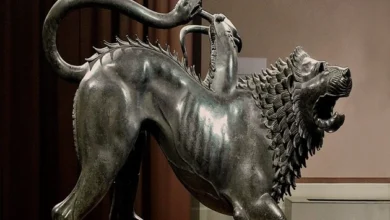10 little-known facts about how gladiators passed away
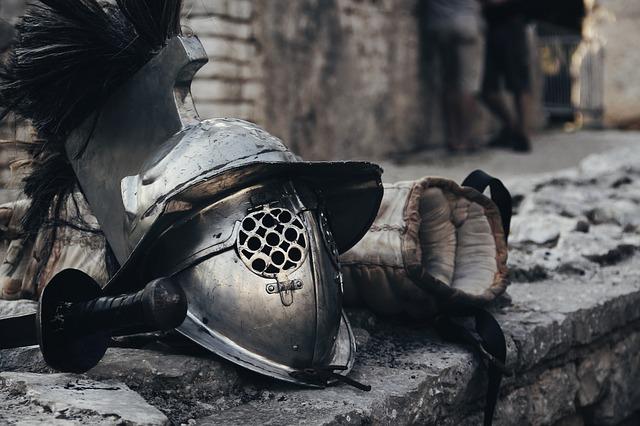
When the gladiator was waiting to enter the arena, he was literally surrounded by death from all sides. He carried the bloody bodies of the dead on a stretcher. Nearby, the flesh of corpses hissed, into which they poked with red-hot metal rods to check whether the defeated gladiator had died.
Also, the gladiator heard the screams of the tribunes and the cries of pain of the combatants, which echoed in the inner corridors of the arena. The smell of smoke, blood and waste must have been overwhelming. And when the gladiator went out under the rays of the sun on the arena, he knew perfectly well that this could be his last moment on Earth.
Special gates
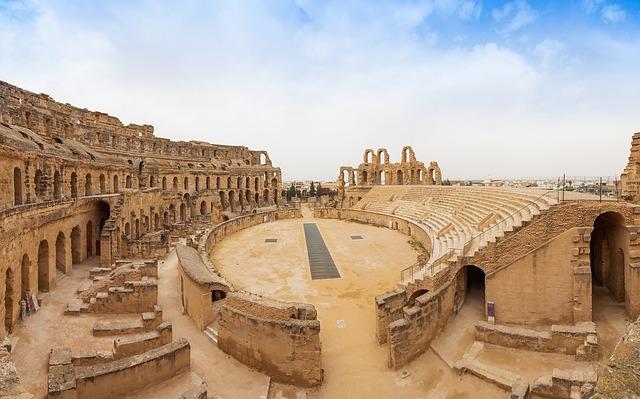
Gladiators fought in arenas, in some cases in pairs, and others just against each other. Sometimes the battle did not continue until death but until someone asked for mercy. When this happened, the crowd of spectators and the show leader, who was called the “editor”, decided whether the gladiator deserved mercy or the enemy should finish him off.
When a gladiator won an event, he was honoured and paid in prize money right in the arena so that the audience could see his earnings.
The gladiator killed in the arena was put on a stretcher and carried through a particular gate. This exit, which the Romans made in the arena especially for the dead, was called Porta Libitinensis. “Porta” translated as “gate”, and “Libitinensis” referred to the goddess of burial Libitina. When the body was carried through the gate, it was taken to a room, where all armour was removed.
Stretcher
The lifeless body was carried out of the arena on a stretcher only if the gladiator died with honour. If he bravely met death at the hands of another, then the gladiator was solemnly carried away from the arena and retained his good name. For gladiators who did not show courage, the end was not so dignified. First, the gladiator was not supposed to shout during the battle.
These were considered a sign of weakness. And if the gladiator asked for mercy, he was considered a coward who could not devote his life to the game. The corpses of these were dragged by the feet from the arena.
Slit throat or broken head
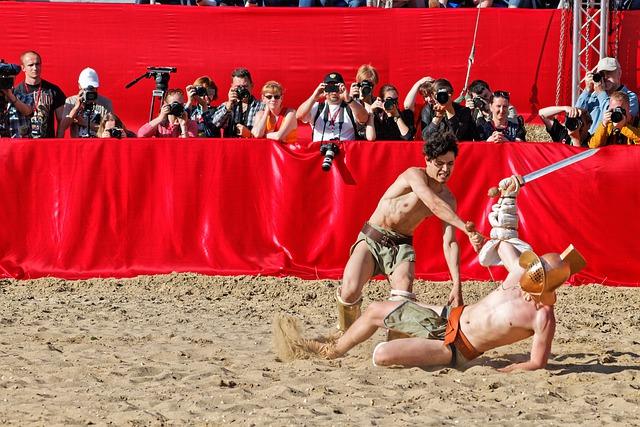
Faking death might seem like a tempting idea for gladiators. In the end, if a gladiator received a severe wound, then he could pretend to be dead and wait until he was carried away from the arena.
In this case, his chances of survival increased. There may have been some gladiators who tried this, but the Romans had measures to make sure the dead were dead and not pretending.
After the gladiator died and was carried out through the gates of death, he was taken to a particular room. There, all armour was removed from him, his body was checked with a red-hot rod, and, as a result, his throat was cut.
And if the gladiator died in the arena “unworthily”, then a particular slave came out, who broke his head with a large stone or club. The gladiator was unable to escape death after he was defeated.
Costumes for slaves
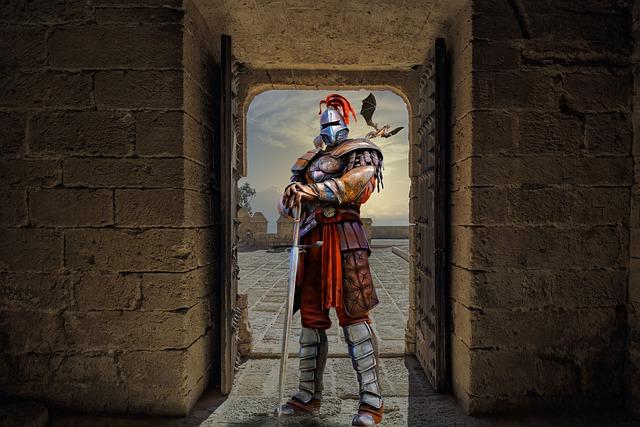
Several written accounts and artifacts have provided varying details of how the arena slaves must make sure the gladiator is dead.
In the gladiator’s grave, dated to around 70 AD, they found a decorated lamp depicting a deceased gladiator. Another lamp, also buried in this tomb, bore Anubis, the Egyptian god of the underworld. This was not surprising, as in some cases, to add extra flavour to the game, the slaves would dress like gods to remove the dead from the arena.
In this particular case, the lamp shows that the slaves dressed as Anubis. Another surviving account stated that the slaves disguised themselves as Charon, the Etruscan demon of death, and Hermes Psychopomp, the deity accompanying souls to the underworld. Charon smashed a gladiator’s skull with a hammer,
The difference between slaves and convicts
The gladiators were recorded as free people and freedmen from slaves, most of whom were captured during many wars in ancient Rome. Men who were bought to become gladiators were not immediately released into the arena.
They were sent to a gladiatorial school, where the novices received extensive physical training. Men had to learn how to handle various weapons to survive the bloody games.
In gladiatorial schools, people were also taught how to put on shows to keep the audience happy. This gave the slaves a chance to emerge victorious from the battles with the volunteers.
The only people who did not receive training were those who were sentenced to death. In these cases, the condemned, in any case, should not have left the arena alive, no matter how well they fought. Their deaths, almost always cruel,
In the face of death
One of the most exciting things that were taught to gladiators in a school of gladiators called Ludus was how to look in the face of death. This meant that future gladiators trained the correct gaze and posture, which needed to be demonstrated when their fate was being decided.
For example, when the gladiator was hit successfully, it was customary for the winner to stop and look at the host of the game. The presenter then gave a signal about whether the deceased gladiator would live or should he die. At this brief, decisive moment, the editor and spectators watched the wounded gladiators.
If a person seemed scared or sick, it was a sign of weakness, and they gave a signal to finish him off. However, if a fallen gladiator could defiantly look his opponent in the eyes without blinking, he was considered courageous and could be pardoned.
In addition to his gaze, the fallen gladiator also had to put his neck under the sword. However, if the gladiator was so brave in the face of death, he could often be spared to continue fighting, entertaining the crowd.
Instead of fighting
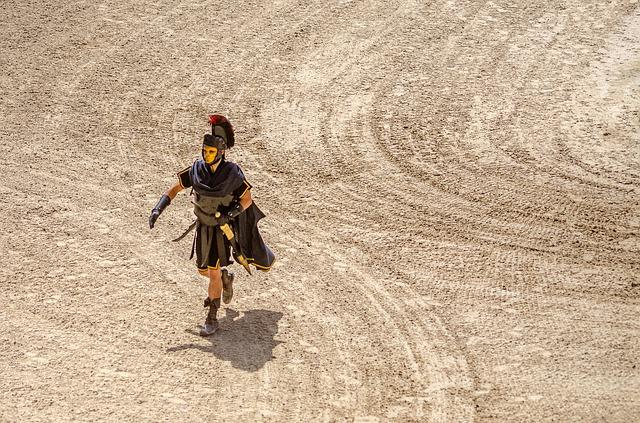
Not all people thought arena fighting was a good idea. In ancient Rome, there are many examples when prisoners of war preferred to commit suicide instead of organizing a bloody massacre for the entertainment of the Roman audience.
In one of the stories of a 4th-century politician, Symmachus described how 20 gladiators killed each other in one game. Then, when the time came to fight in the arena, they killed each other, and the latter committed suicide.
A case when a prisoner of war was also described when he was taken to the arena thrust his head into a moving wheel of a cart to break his neck. In another story, a German gladiator, while waiting for his turn to enter the arena, entered the restroom, grabbed the sponge stick used to wipe the butt, and thrust it down his throat. Unfortunately, a dirty sponge on the end of the post blocked the airway, and he died of suffocation.
Drinking from the body
When a gladiator was mortally wounded in the arena and fell bleeding to death, viewers could see another person rush to the corpse. He knelt next to the slain gladiator and put his lips to the bloody wound, starting to drink blood like a vampire.
This was not unusual at all. The man who drank the gladiator’s blood had epilepsy who was told that his only sure cure for the disease was to drink blood straight from the gladiator’s wound.
If the gladiator was gutted in the arena, the audience saw a completely different scene. People from the crowd rushed to the corpse, trying to grab at least a piece of the warrior’s liver. The liver was then sold to epileptic sufferers prescribed to take nine servings of liver from different gladiators to cure the disease.
S*xual prowess
It cannot be denied that gladiators were s*xual objects. However, they were strong, courageous and dangerous people. They made women swoon, and there were plenty of free women who left their husbands and children behind to snatch the gladiators.
The lucky ones who survived the stage received the absolute adoration of the crowd. They were idolized. Images of the winners could be seen on vases, mosaics and even carvings on the walls. Therefore, it is not surprising that the belief arose that the blood of a gladiator has more than just healing powers. Men believed that the blood of fighters increased s*xual energy.
However, unlike people with epilepsy, who had to drink blood straight from the wound, men could buy gladiator’s blood to consume when needed.
Cremation or putrefaction
How the gladiator fought also determined how his body would be dealt with after death. Heroic gladiators who died with dignity, in the opinion of the Roman people, were often cremated.
Friends and relatives were allowed to take his body for funeral rites. After cremation, the ashes were buried along with offerings to the gods.
In some places in the Roman Empire, gladiators were buried in areas reserved only for them. The bodies of gladiators who died shamefully were not usually treated so well. If no one came for the body of a fallen soldier, he was thrown into the river or thrown into a wasteland, where the remains rotted.
This was considered an insult to the deceased because the Romans believed that the soul could not rest when dirt covered the remains.



